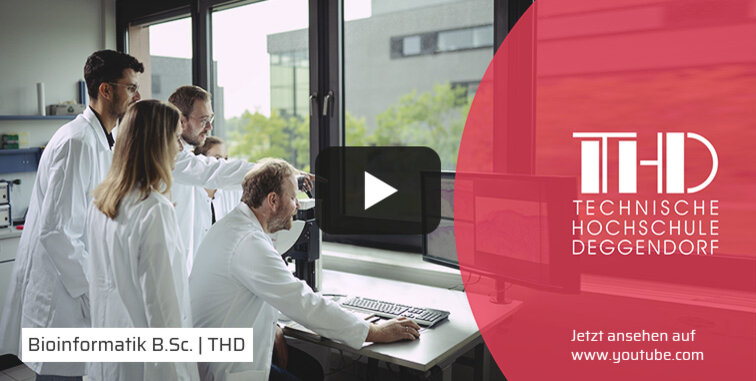shape digital change
become part of the megatrend
We provide support for internships, starting a job in a company, or setting up your own business

decoding biological data
#bioinformatics #biomedicine #personalisedmedicine #biomedicaldataanalysis #computationalscience #informatics
#molecular pathology #digitisation #bigdata #programming #precision medicine #molecular diagnostics #computationalbiology
Bioinformaticians specialise in programmes and algorithms that process and prepare data from molecular and cell biology. There is a lot of data available on genes, proteins, biological processes or the structure of cells that can help research and medicine. To evaluate them manually is simply not feasible. With the help of modern information technology, you can make the evaluation possible and even process the data in a way that is adapted to specific questions. In this way, doctors, pharmacists and researchers can better understand biological phenomena and help to ensure that diseases are treated in a more targeted way and that people receive the optimal form of therapy as quickly as possible. Together, biology and computer science are an exciting professional field. During your studies, subjects such as molecular biology, chemistry, biochemistry and physiology are just as much a part of your curriculum as mathematics and computer science. If you are interested in natural sciences and like to think in a solution-oriented and networked way, you have very good chances of being successful in this degree programme.
fact-sheet bioinformatics
Degree: Bachelor of Science (B.Sc.)
Duration: 7 semesters (3.5 years)
ECTS points: 210
Start: October (winter semester)
Location: Deggendorf
Taught in: German (see language requirements)
Application period: 15 April - 15 September
Admission requirements:
- General German university entrance qualification, or please check your eligibilty at the DAAD if you own an international qualification
Prerequisites: General technical understanding
Postgraduate opportunities:
Fees:
- No tuition fees, only student union fee
- International students from non-EU/EEA countries are required to pay service fees for each semester. Click here to read about our service fees.
Contact:
- General info about studying at DIT: prospective student advisors
- Information about the programme content: bin-b-info@th-deg.de
career prospects
Bioinformaticians are sought everywhere where biological and medical data are generated. As a rule, there is a specific problem or question that you have to answer by analysing the data. You then develop computer-based applications, i.e. programmes, algorithms or scripts.
In this way you contribute to
- Research in the processes in the human body,
- The development of new medicines,
- Identifying disease-causing "biomarkers" (prognostics or diagnostics),
- The simulation of biological phenomena
- Or evolutionary research.
As a rule, you don't need more than a computer for this. Quite often you work as part of a scientific group of medical doctors, natural scientists and other computer scientists in the aforementioned fields. This can be in hospitals, in the pharmaceutical industry, in laboratories or even in the cosmetics industry. The study of biological data is also relevant for research in the plant and animal world.
As a bioinfomatics technician you will help
- Doctors find the right therapy,
- To offer patients the most effective form of therapy as quickly as possible,
- To communicate and to further research understanding of molecular biology and biomedical issues,
- Develop diagnostic tools in the field of molecular pathology,
- Digitalisation in health care, and
- Drug development.
Jobs typical for bioinformaticians:
- In companies in the pharmaceutical or chemical industry
- Software and database providers for scientific and biomedical applications
- At IT service providers and
- In research and development.
subject overview
Overview of lectures and courses, SWS (Semesterwochenstunden = weekly hours/semester) and ECTS (European Credit Transfer and Accumulation System) in the Bachelor's degree Bioinformatics.
| 1. Semester | SWS | ECTS |
| Biosciences 1 | 4 | 5 |
| Physiology | 4 | 5 |
| Operating Systems and Networks | 4 | 5 |
| Mathematics 1 | 4 | 5 |
| Programming 1 | 4 | 5 |
| Basics of Computer Science | 4 | 5 |
| 2. Semester | ||
| Molecular Biomedicine and Biochemistry 1 | 4 | 5 |
| Key Competency 1 | 4 | 5 |
| Mathematics 2 | 4 | 5 |
| Internet Technologies | 4 | 5 |
| Programming 2 | 4 | 5 |
| Algorithms and Data Structures | 4 | 5 |
| 3. Semester | ||
| Molecular Biomedicine and Biochemistry 2 | 4 | 5 |
| Biosciences 2 | 4 | 5 |
| Data Bases | 4 | 5 |
| Project Management | 4 | 5 |
| Stochastics | 4 | 5 |
| Key Competency 2 | 4 | 5 |
| 4. Semester | ||
| Bioinformatics 1 | 4 | 5 |
| Internship – Methods of Biomedicine | 4 | 5 |
| Software Engineering | 4 | 5 |
| Machine Learning | 4 | 5 |
| Physics | 4 | 5 |
| Key Competency 3 | 4 | 5 |
| 5. Semester | ||
| Internship Module | ||
| Company internship | - | 25 |
| PLV 1 – Career Service | 2 | 2,5 |
| PLV 2 | 2 | 2,5 |
| 6. Semester | ||
| Molecular Biotechnology | 4 | 5 |
| Biomedicine | 4 | 5 |
| Bioinformatics 2 | 4 | 5 |
| Digital Biomedicine | 4 | 5 |
| Deep Learning / Big Data | 4 | 5 |
| FWP-1 | 4 | 5 |
| 7. Semester | ||
| FWP-2 | 4 | 5 |
| FWP-3 | 4 | 5 |
| FWP-4 | 4 | 5 |
| Bachelor Seminar | 2 | 3 |
| Bachelor Thesis | - | 12 |




